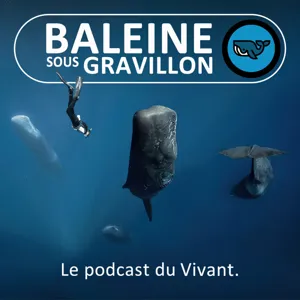Podcast Summary
Exploring the Science Behind Beloved Movies: Revisiting beloved movies can inspire curiosity and learning about science, as demonstrated in NPR's Shortwave Movie Club episode about 'Twister'.
Our daily lives can be enriched by revisiting beloved movies and exploring the science behind them. Maddie Sofia introduces a new segment on NPR's Shortwave podcast called the Shortwave Movie Club. In this episode, she discusses the 1990 film "Twister" with meteorologist and analyst Ali Burgos from the National Oceanic and Atmospheric Administration. The movie, which follows a team of scientists as they chase tornadoes to study them, is a personal favorite of Maddie's. She shares how she was captivated by the film as a child and how it has remained a source of fascination for her. Burgos provides insight into the science behind tornadoes and the importance of studying them. The conversation highlights the intersection of science and entertainment, demonstrating how movies can inspire curiosity and learning. So, whether you're a fan of "Twister" or just looking for a new way to engage with science, tune in to Shortwave's Movie Club for a fun and informative discussion.
Understanding Tornadoes: Reality vs. Movies: Real-life scientific efforts to understand tornadoes and other natural phenomena showcase human curiosity and innovation, leading to new discoveries and technologies in various fields.
While movies may take creative liberties with the portrayal of natural phenomena like tornadoes, the scientific pursuit of knowledge and innovation continues to push boundaries in understanding these complex systems. In the movie under discussion, the portrayal of a tornado as a roaring lion might not align with reality, but the concept of sending instruments into tornadoes to gather valuable data is based on real scientific attempts. Companies like Amgen and Integrative Therapeutics are leading this charge in various fields, from biotechnology to health supplements, delivering new therapies and discoveries to enhance human health. Apple Card, with its cashback rewards, is another innovation that can make everyday purchases more rewarding. The movie's scene of sending instruments into tornadoes might be an exaggeration, but the real-life scientific efforts to understand these phenomena are a testament to human curiosity and innovation.
Real-life tornado research: Measuring temperature, pressure, and winds: Real-life tornado research involves measuring temperature, pressure, and winds in real-time using instruments, with modern methods using small weather balloons to reduce risk.
The movie "Twister" draws inspiration from real-life weather research, specifically the Dorothy project which named its instrument after Toto from The Wizard of Oz. The goal was to measure temperature, pressure, and winds in real-time, as radar data had limitations. Early attempts involved risky attempts to place large metal instruments in tornadoes' paths. Now, a new program called Taurus uses small weather balloons with instruments, reducing the risk. The iconic scene of the main characters attempting to get close to an F5 tornado and delivering a device into it, although dramatized, highlights the determination and danger of real-life tornado research. Despite the differences in exact measurement techniques, the concept remains the same. In the movie, the characters' attempts to escape the tornado while anchoring themselves to a deep pipe is not feasible in real life.
Determining Tornado Intensity: Tornado intensity can't be judged by appearance, scientists determine it based on damage caused, smaller tornadoes can be more dangerous, and predicting intensity beforehand is impossible.
The intensity of a tornado cannot be determined just by its appearance. The scene in the movie where the characters experience an F5 tornado may be thrilling, but in reality, even a small object flying at such high speeds could be deadly. Scientists must conduct damage surveys after a tornado to determine its intensity based on the extent of damage caused. Furthermore, tornadoes can be deceptively violent, and smaller ones can be more dangerous than larger ones might appear. Additionally, it's impossible to predict a tornado's intensity before it occurs.
The impact of 'Twister' on inspiring representation and passion in science: 'Twister' challenged stereotypes of scientists and inspired a new generation to pursue careers in science through authentic representation and passion.
Importance of representation and passion in science, as exemplified by the lead female researcher in the movie "Twister." The film challenged the stereotype of buttoned-up, predominantly male scientists and showed the real-life side of science through researchers getting their hands dirty in the field. For some, like meteorologist Ali Burgos, this movie inspired a career change, showing that science extends beyond being a TV broadcaster. Burgos shared her personal connection to the movie, which resonated with many meteorology enthusiasts. The episode also highlighted the impact of "Twister" on inspiring a new generation of scientists. Overall, this discussion emphasizes the significance of representation and passion in inspiring individuals to pursue careers in science.







